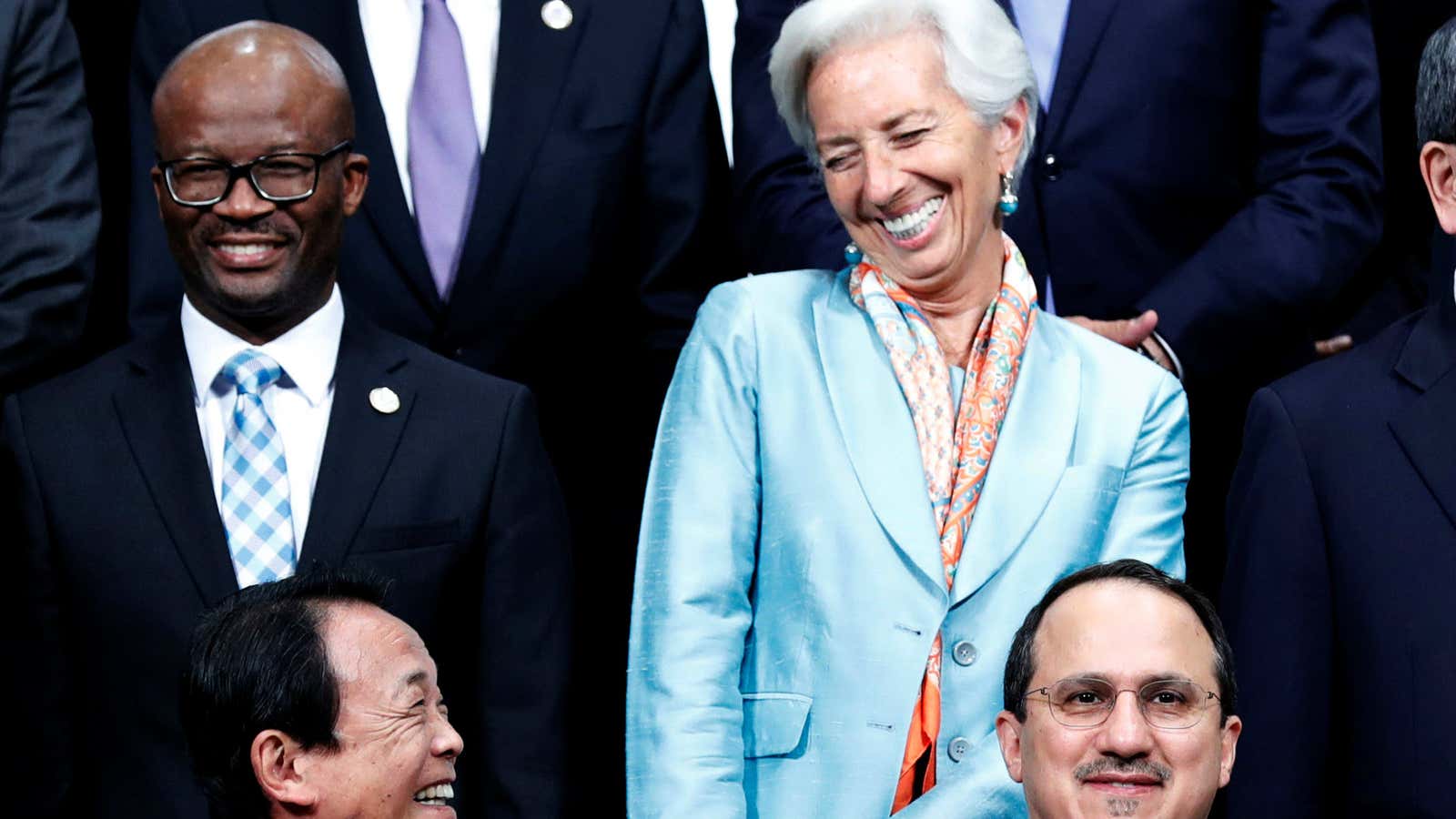Christine Lagarde has been nominated to replace Mario Draghi as president of the European Central Bank (ECB). A French politician, Lagarde, 63, has run the International Monetary Fund since 2011.
If she’s confirmed, both the ECB and the US Federal Reserve—the world’s two most influential central banks—will be headed by lawyers, not economists. It was a good run while it lasted. Forty years ago, economists convinced the world that good monetary policy needed to be free of political influence in order to focus on long-term considerations in a more global and connected financial system. As a result, governments installed technocrats with deep academic and market expertise to head central banks. But following the financial crisis of 2008 and a rising wave of economic populism, technical expertise and knowledge of monetary policy does not cut it anymore. Even supposedly apolitical institutions now need to be run by people with great political instincts and, often, they are not economists.
The rise of the technocrats
Modern monetary policy aims to keep inflation and unemployment low and predictable. And by that standard, economists did a pretty good job when they were running things. Up until the 1970s politicians saw interest rates as a tool to achieve their political goals, and the result was often high and unpredictable inflation. Academics argued for independent central bankers who targeted price stability and low unemployment, long-term goals that sometimes conflict with short-term political interests.
An economist ran the Fed for 40 years until Jerome Powell succeeded Janet Yellen last year. Economists have always run the ECB for its much shorter, 21-year history. And their regimes coincided with low, stable inflation and—with the notable exception of the Great Recession—low unemployment. Many of the factors that caused the recession were beyond the power of the central banks, but the Fed and ECB managed to keep their economies out of a depression, by cutting rates, buying long-dated securities, charging interest rates on reserves, and offering dollar liquidity swap arrangements to foreign central banks. To some extent, economists have become victims of their own success: Inflation has been low for so long many don’t remember the economic harm it can cause. As the Fed expanded its scope beyond inflation management to objectives like financial stability, it subject itself to more political scrutiny.
Nonetheless, in an era that put a premium on expertise, international coordination, and technocratic ability, economists were the right people for the job. But we are not in those times anymore.
It is now a political job
We now live in a world where politicians, journalists, and the public are wary of expertise and economic populism threatens central bank independence. US president Donald Trump regularly voices his displeasure with Fed policy and has alluded to replacing Powell if he does not cut interest rates. Turkey’s Recep Tayyip Erdogan and India’s Narendra Modi also question the value of central bank independence. In light of this, central bank heads are largely becoming the public face of an organization who must master the political games necessary to keep monetary policy free from government interference.
I admit I was skeptical of Powell, because I thought the Fed chair role needed to be a leading thinker in monetary policy. But Powell’s relationship with his vice chair, Richard Clarida, offers a good model that could be the future of central banking. Clarida, and the Fed staff bring the expertise—Clarida has an impressive research background and experience in the financial industry—and Powell can fight the political battles. The heads of central banks may need to have political skills in the future, but central banks still need to be staffed by smart, competent economists. Lagarde has proven herself to be a great political operator, and as head of the IMF, she has lots of experience working with economists. For this era, she may be the best choice.
However, it is high-risk path. Both Powell and Lagarde have enough economic knowledge and humility, to consult with economists, and know when to put economic interests above politics. Future central bankers may not have this wisdom. To be fair, economists don’t always either.
